Premium Only Content

"The Trial of Jim Keegstra" (10Nov1985) In Toronto Ontario Canada
James "Jim" Keegstra
(March 30, 1934 - June 2, 2014)
•HISTORY OF THE CASE•
(NOTE on the TEXT Below: It is from 'Wikipedia', So Take With a Grain of Salt!!!)
Keegstra taught social studies in the high school in Eckville. In 1982, it came to light that he was teaching his students that the Holocaust was a fraud and attributing various evil qualities to Jews. He described Jews to his pupils as "treacherous", "subversive", "sadistic", "money-loving", "power hungry", and "child killers". He taught his classes that the Jewish people seek to destroy Christianity and are responsible for depressions, anarchy, chaos, wars, and revolution. According to Keegstra, the Jews "created the Holocaust to gain sympathy" and, in contrast to the open and honest Christians, were said to be deceptive, secretive, and inherently evil. He taught his students the myth of a Jewish world conspiracy whose blueprint allegedly came from the Talmud.[11][12] Keegstra expected his students to reproduce his teachings in class and on exams. If they failed to do so, their marks suffered.[13]
The way Keegstra taught his students was apparently known to the school principal, who ignored complaints from parents. It was not until the parents lodged a complaint with the school board and went to the local newspaper, the Red Deer Advocate, that the issue became public.[10]
When Keegstra's teachings came to light, he was fired by the school board in December 1982. He was subsequently stripped of his teaching certificate.[10] The issue attracted international media coverage.[14]
In 1983, Keegstra was defeated in his bid for re-election as mayor of Eckville, by a vote of 278 to 123, with a 92 per cent voter turnout. Residents resented the adverse publicity he had brought on the town and felt that he had damaged its reputation.[15]
First trial: 1984–1985
edit
In 1984, the Attorney General of Alberta charged Keegstra under the Criminal Code. The allegation was that Keegstra "did unlawfully promote hatred against an identifiable group, to wit: the Jewish people, by communicating statements while teaching to students at Eckville High School contrary to the provisions of the Criminal Code."[16]
At his trial before the Alberta Queen's Bench, Keegstra applied to have this charge quashed. He argued that the Criminal Code offence of promoting hatred against an identifiable group infringed the constitutional guarantee of freedom of expression, set out in section 2 of the Canadian Charter of Rights and Freedoms. The trial judge, Justice Quigley, ruled against him. He held that the offence did not infringe freedom of expression, as the promotion of hatred was not the kind of expression that section 2 was designed to protect. In the alternative, if he was wrong on that point, he concluded that the infringement was justified under section 1 of the Charter.[16]
The matter then went to trial, which lasted 70 days. Many of Keegstra's former students testified against him. In the end, the jury convicted him of the charge, and the court fined him $5,000.[17]
First appeal: 1988
edit
Keegstra took his conviction to the Court of Appeal of Alberta, again arguing that the criminal offence violated the Charter's guarantee of freedom of expression.
He also brought a new challenge, relating to the defence of truth. The Criminal Code provided that it was a defence to the charge if the statements alleged to have been said were true. However, the onus was on the accused person to prove the truth of the statements, on a balance of probabilities. Keegstra argued that this reverse onus violated the presumption of innocence guaranteed by section 11(d) of the Charter. He admitted he was not able to prove the truth of the many anti-semitic statements he made to his students. In the CBC News presentation Canada's Hate Law: The Keegstra Case (1991), Keegstra displayed the material in which his views were obtained, admitting that none of it came from mainstream historical sources.[citation needed]
The Court of Appeal ruled in Keegstra's favour on the constitutional issues. The unanimous three-judge panel found that the criminal offence infringed freedom of expression and could not be justified under section 1 of the Charter. They also found that the reverse onus violated the presumption of innocence and could not be justified under section 1.[18]
-
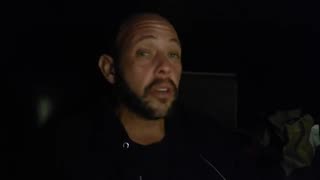 2:10:48
2:10:48
Truth Layden
5 days ago"Lamont On The Run is LIVE!" (14/15Dec2024) A Lamont Dorsey Livestream
875 -
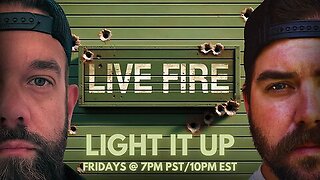 LIVE
LIVE
I_Came_With_Fire_Podcast
7 hours agoGovt' Shutdowns, VA Scandals, MORE Drones, Syrian Strikes and staged rescues , and The DHS!
372 watching -
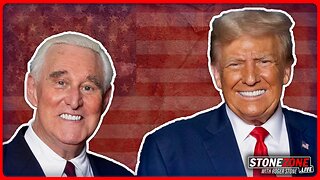 56:55
56:55
The StoneZONE with Roger Stone
3 hours agoTrump Should Sue Billionaire Governor JB Pritzker for Calling Him a Rapist | The StoneZONE
11.8K1 -
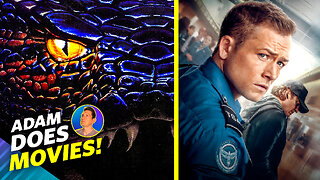
Adam Does Movies
2 hours ago $0.62 earnedMore Reboots + A Good Netflix Movie + Disney Live-Action Rant - LIVE
10.3K -
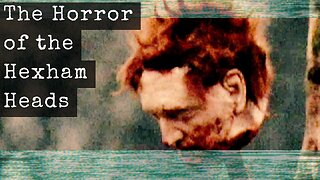 36:28
36:28
TheTapeLibrary
12 hours ago $2.56 earnedThe Disturbing True Horror of the Hexham Heads
28K2 -
 LIVE
LIVE
JdaDelete
22 hours ago $0.24 earnedHalo MCC with the Rumble Spartans 💥
240 watching -
 LIVE
LIVE
Edge of Wonder
6 hours agoChristmas Mandela Effects, UFO Drone Updates & Holiday Government Shake-Ups
360 watching -
 1:37:36
1:37:36
Mally_Mouse
5 hours agoLet's Play!! -- Friends Friday!
27K -
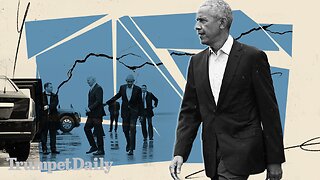 57:45
57:45
LFA TV
1 day agoObama’s Fake World Comes Crashing Down | Trumpet Daily 12.20.24 7PM EST
22.6K10 -
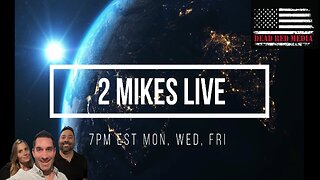 1:27:17
1:27:17
2 MIKES LIVE
4 hours ago2 MIKES LIVE #158 Government Shutdown Looms and Games!
22.4K9